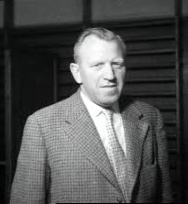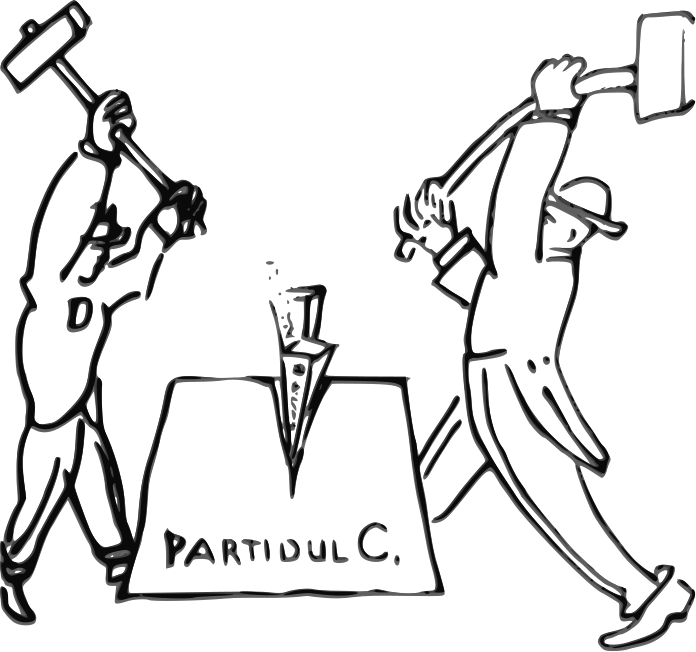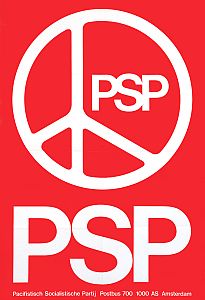|
Socialist Workers' Party (Netherlands, 1959)
The Socialist Workers' Party ( nl, Socialistische Werkers Partij, abbreviated SWP) was a communist party in the Netherlands. SWP was founded in 1959, after a split within the leadership of the Communist Party of the Netherlands. The founders of CPN opposed the CPN party secretary Paul de Groot. They had formed the ''Brug''-group, and launched the new party in July 1959. The party held its first congress in Amsterdam, January 23–24, 1960.Archief H.H. Drenth' Ideologically SWP adhered to Marxism-Leninism, and the party was organized along the lines of democratic centralism. The party had a membership of around 500.Backes, Uwe. Communist and Post-Communist Parties in Europe'. Göttingen: Vandenhoeck & Ruprecht, 2008. p. 17 The party proclaimed its solidarity with the Soviet Union, but the Soviets paid little interest in the Dutch splinter group. In 1965 the majority of SWP members joined the Pacifist Socialist Party The Pacifist Socialist Party ( nl, Pacifistisch Socialistische ... [...More Info...] [...Related Items...] OR: [Wikipedia] [Google] [Baidu] |
Communist Party
A communist party is a political party that seeks to realize the socio-economic goals of communism. The term ''communist party'' was popularized by the title of ''The Manifesto of the Communist Party'' (1848) by Karl Marx and Friedrich Engels. As a vanguard party, the communist party guides the political education and development of the working class (proletariat). As a ruling party, the communist party exercises power through the dictatorship of the proletariat. Vladimir Lenin developed the idea of the communist party as the revolutionary vanguard, when the socialist movement in Imperial Russia was divided into ideologically opposed factions, the Bolshevik faction ("of the majority") and the Menshevik faction ("of the minority"). To be politically effective, Lenin proposed a small vanguard party managed with democratic centralism which allowed centralized command of a disciplined cadre of professional revolutionaries. Once a policy was agreed upon, realizing political goals req ... [...More Info...] [...Related Items...] OR: [Wikipedia] [Google] [Baidu] |
Netherlands
) , anthem = ( en, "William of Nassau") , image_map = , map_caption = , subdivision_type = Sovereign state , subdivision_name = Kingdom of the Netherlands , established_title = Before independence , established_date = Spanish Netherlands , established_title2 = Act of Abjuration , established_date2 = 26 July 1581 , established_title3 = Peace of Münster , established_date3 = 30 January 1648 , established_title4 = Kingdom established , established_date4 = 16 March 1815 , established_title5 = Liberation Day (Netherlands), Liberation Day , established_date5 = 5 May 1945 , established_title6 = Charter for the Kingdom of the Netherlands, Kingdom Charter , established_date6 = 15 December 1954 , established_title7 = Dissolution of the Netherlands Antilles, Caribbean reorganisation , established_date7 = 10 October 2010 , official_languages = Dutch language, Dutch , languages_type = Regional languages , languages_sub = yes , languages = , languages2_type = Reco ... [...More Info...] [...Related Items...] OR: [Wikipedia] [Google] [Baidu] |
Communist Party Of The Netherlands
The Communist Party of the Netherlands ( nl, Communistische Partij Nederland, , CPN) was a Dutch communist party. The party was founded in 1909 as the Social-Democratic Party (SDP) and merged with the Pacifist Socialist Party, the Political Party of Radicals and the Evangelical People's Party in 1991, forming the centre-left GreenLeft. Members opposed to the merger founded the New Communist Party of the Netherlands. History Foundation In 1907 Jan Ceton, Willem van Ravesteyn and David Wijnkoop founded (The Tribune), a magazine in which they criticized the leadership of the Social Democratic Workers' Party (SDAP) of which they were members. They maintained orthodox marxist views and expected a proletarian revolution. They opposed the leadership of the SDAP, who were more oriented towards more a revisionist ideology and a parliamentary and reformist political strategy. At a party congress in Deventer held on February 14, 1909 the leadership of the SDAP demanded that they st ... [...More Info...] [...Related Items...] OR: [Wikipedia] [Google] [Baidu] |
Horst Lademacher
Horst Lademacher (born 13 July 1931) is a German historian specializing in the history of the Netherlands. He was a professor of modern history at the Vrije Universiteit Amsterdam, University of Kassel and the University of Münster. At the latter institute he was also director of the Zentrum für Niederlande-Studien from 1990 to 2000. Career Lademacher was born on 13 July 1931 in Ründeroth. In 1957 he obtained his doctorate at the University of Münster with a dissertation titled: "Die Stellung des Prinzen von Oranien als Statthalter in den Niederlanden von 1572-1584", about the position of William of Orange as ''stadtholder'' in the Netherlands from 1572 to 1584. From 1958 to 1962 he worked as a scientific employee at the International Institute of Social History. He subsequently worked two years for the European Economic Community in Brussels. In 1969 Lademacher obtained his habilitation at the University of Bonn under with a dissertation titled: "Die belgische Neutralität a ... [...More Info...] [...Related Items...] OR: [Wikipedia] [Google] [Baidu] |
Paul De Groot
Saul "Paul" de Groot (Amsterdam, 19 July 1899 – Bussum, 3 August 1986) was a Dutch politician of the Communist Party of the Netherlands The Communist Party of the Netherlands ( nl, Communistische Partij Nederland, , CPN) was a Dutch communist party. The party was founded in 1909 as the Social-Democratic Party (SDP) and merged with the Pacifist Socialist Party, the Political Party ... (CPN). He was also a member of the House of Representatives for the CPN and chief editor of the party newspaper De Waarheid. Biography De Groot was the son of a Jewish diamond cutter in Amsterdam. He and his parents left for Antwerp in search of work. After primary school, De Groot jr. worked as an apprentice diamond cutter. When Antwerp was threatened by German troops after the outbreak of the First World War the De Groot family fled to the neutral Netherlands and temporarily settled in Amsterdam. Son Paul got a job with a cigar maker who taught him the principles of socialism. In 1916 he retur ... [...More Info...] [...Related Items...] OR: [Wikipedia] [Google] [Baidu] |
Amsterdam
Amsterdam ( , , , lit. ''The Dam on the River Amstel'') is the Capital of the Netherlands, capital and Municipalities of the Netherlands, most populous city of the Netherlands, with The Hague being the seat of government. It has a population of 907,976 within the city proper, 1,558,755 in the City Region of Amsterdam, urban area and 2,480,394 in the Amsterdam metropolitan area, metropolitan area. Located in the Provinces of the Netherlands, Dutch province of North Holland, Amsterdam is colloquially referred to as the "Venice of the North", for its large number of canals, now designated a World Heritage Site, UNESCO World Heritage Site. Amsterdam was founded at the mouth of the Amstel River that was dammed to control flooding; the city's name derives from the Amstel dam. Originally a small fishing village in the late 12th century, Amsterdam became a major world port during the Dutch Golden Age of the 17th century, when the Netherlands was an economic powerhouse. Amsterdam is th ... [...More Info...] [...Related Items...] OR: [Wikipedia] [Google] [Baidu] |
Democratic Centralism
Democratic centralism is a practice in which political decisions reached by voting processes are binding upon all members of the political party. It is mainly associated with Leninism, wherein the party's political vanguard of professional revolutionaries practised democratic centralism to elect leaders and officers, determine policy through free discussion, and decisively realise it through united action.Lenin, Vladimir (1906)"Report on the Unity Congress of the R.S.D.L.P." Marxists Internet Archive. Retrieved 14 February 2020. Democratic centralism has also been practised by social democratic and |
Soviet Union
The Soviet Union,. officially the Union of Soviet Socialist Republics. (USSR),. was a transcontinental country that spanned much of Eurasia from 1922 to 1991. A flagship communist state, it was nominally a federal union of fifteen national republics; in practice, both its government and its economy were highly centralized until its final years. It was a one-party state governed by the Communist Party of the Soviet Union, with the city of Moscow serving as its capital as well as that of its largest and most populous republic: the Russian SFSR. Other major cities included Leningrad (Russian SFSR), Kiev (Ukrainian SSR), Minsk ( Byelorussian SSR), Tashkent (Uzbek SSR), Alma-Ata (Kazakh SSR), and Novosibirsk (Russian SFSR). It was the largest country in the world, covering over and spanning eleven time zones. The country's roots lay in the October Revolution of 1917, when the Bolsheviks, under the leadership of Vladimir Lenin, overthrew the Russian Provisional Government ... [...More Info...] [...Related Items...] OR: [Wikipedia] [Google] [Baidu] |
Pacifist Socialist Party
The Pacifist Socialist Party ( nl, Pacifistisch Socialistische Partij, PSP) was a Democratic socialism, democratic socialist Politics of the Netherlands, Dutch socialism, socialist political party. The PSP played a small role in Dutch politics. It is one of the predecessors of the GroenLinks, GreenLeft. Party history Before 1957 In 1955 a group of "politically homeless" activists had formed. The group mainly consisted of former members of the Partij van de Arbeid, Labour Party (PvdA) and the Communist Party of the Netherlands (CPN). They had left the PvdA over Politionele acties, the military intervention against the Indonesian National Revolution, Indonesian independence movement and the Labour party's support for NATO. Many of them had a background in the orthodox Marxist wing of the Social Democratic Workers' Party (Netherlands), Social Democratic Workers' Party or the Christian Democratic Union (Netherlands), Christian Democratic Union (CDU), which had merged into the PvdA. Th ... [...More Info...] [...Related Items...] OR: [Wikipedia] [Google] [Baidu] |
1959 Establishments In The Netherlands
Events January * January 1 - Cuba: Fulgencio Batista flees Havana when the forces of Fidel Castro advance. * January 2 - Lunar probe Luna 1 was the first man-made object to attain escape velocity from Earth. It reached the vicinity of Earth's Moon, and was also the first spacecraft to be placed in heliocentric orbit. * January 3 ** The three southernmost atolls of the Maldive archipelago (Addu Atoll, Huvadhu Atoll and Fuvahmulah island) declare independence. ** Alaska is admitted as the 49th U.S. state. * January 4 ** In Cuba, rebel troops led by Che Guevara and Camilo Cienfuegos enter the city of Havana. ** Léopoldville riots: At least 49 people are killed during clashes between the police and participants of a meeting of the ABAKO Party in Léopoldville in the Belgian Congo. * January 6 ** Fidel Castro arrives in Havana. ** The International Maritime Organization is inaugurated. * January 7 – The United States recognizes the new Cuban government of Fidel Castro. * Ja ... [...More Info...] [...Related Items...] OR: [Wikipedia] [Google] [Baidu] |
1965 Disestablishments In The Netherlands
Events January–February * January 14 – The Prime Minister of Northern Ireland and the Taoiseach of the Republic of Ireland meet for the first time in 43 years. * January 20 ** Lyndon B. Johnson is Second inauguration of Lyndon B. Johnson, sworn in for a full term as President of the United States. ** Indonesian President Sukarno announces the withdrawal of the Indonesian government from the United Nations. * January 30 – The Death and state funeral of Winston Churchill, state funeral of Sir Winston Churchill takes place in London with the largest assembly of dignitaries in the world until the 2005 funeral of Pope John Paul II. * February 4 – Trofim Lysenko is removed from his post as director of the Institute of Genetics at the Russian Academy of Sciences, Academy of Sciences in the Soviet Union. Lysenkoism, Lysenkoist theories are now treated as pseudoscience. * February 12 ** The African and Malagasy Republic, Malagasy Common Organization ('; OCA ... [...More Info...] [...Related Items...] OR: [Wikipedia] [Google] [Baidu] |

.jpg)

